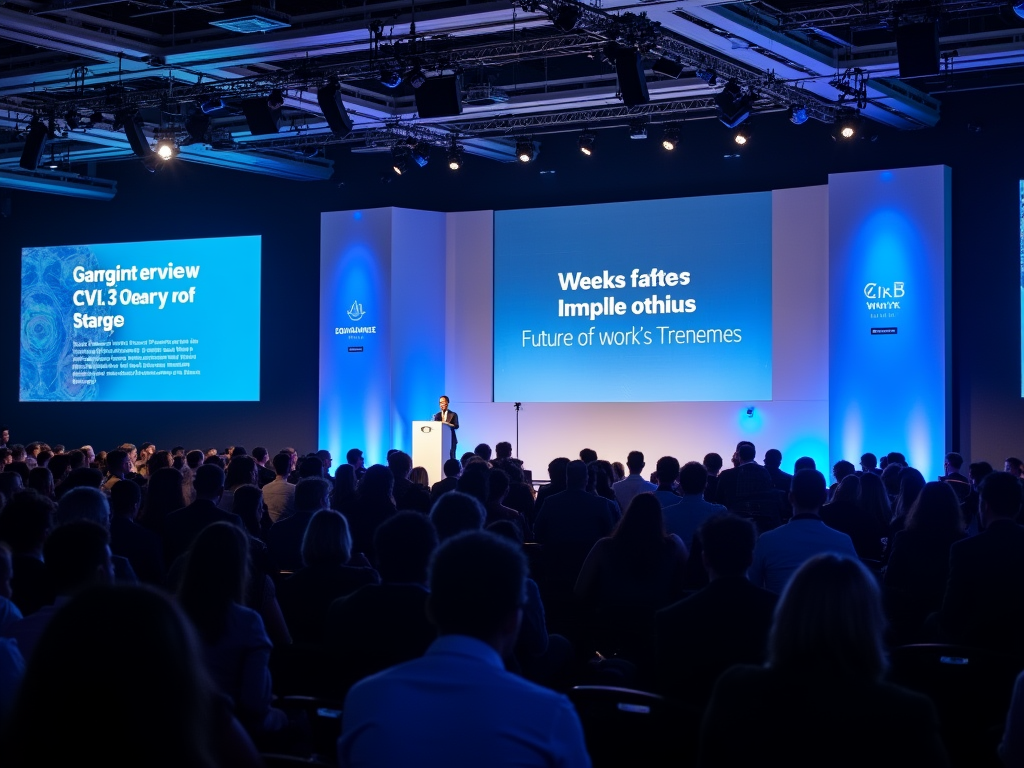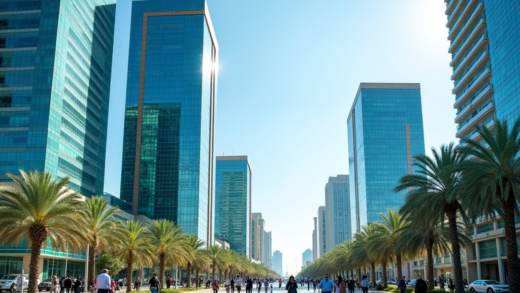As the world undergoes rapid transformations fueled by technology and globalization, Dubai has emerged as a pivotal player in shaping the future of work. This vibrant city has become a global hub for innovation, attracting talent and companies from around the world. With its strategic location, state-of-the-art infrastructure, and progressive policies, Dubai is leading the way in defining new work paradigms that are influencing the global workforce. In this article, we will explore Dubai’s key initiatives, its role in remote work trends, and how its unique business landscape is redefining the future of work.
Dubai’s Vision for the Future of Work

Dubai has adopted a forward-thinking approach to employment, encapsulated in its ambitious Vision 2021. The city’s government aims to create a flexible and dynamic labor market that embraces innovation and diversity. Key components of this vision include:
- Investment in Technology: Dubai is investing heavily in technological advancements, including artificial intelligence and blockchain, to improve productivity and efficiency in the workplace.
- Diverse Workforce: By promoting inclusivity and diversity in its employment practices, Dubai attracts a vast array of talent from different cultural backgrounds.
- Smart City Initiatives: The Smart Dubai initiative seeks to transform the city into a leading smart city, enhancing both quality of life and work through technology integration.
With these strategies, Dubai is not just preparing for the future of work but actively creating it, setting a benchmark for other global cities.
The Rise of Remote Work in Dubai

The COVID-19 pandemic has accelerated the shift towards remote work, and Dubai is at the forefront of this transition. Companies are increasingly considering flexible work arrangements, enabling employees to work from anywhere. This trend is reshaping the landscape of employment in several ways:
- Pandemic-Driven Flexibility: The need for social distancing has pushed many organizations to adopt remote work policies permanently.
- Digital Nomadism: Dubai has launched initiatives to attract digital nomads, allowing professionals to live and work in the city for extended periods while exploring its cultural offerings.
- Supportive Infrastructure: The city offers a robust digital infrastructure, enhancing connectivity and collaboration among remote teams.
As flexible work continues to be the norm, Dubai’s adaptability serves as a model for other cities, solidifying its status as a global business hub.
Regulatory Framework and Business Ecosystem
To foster a thriving work environment, Dubai has established a progressive regulatory framework that encourages entrepreneurship and innovation. Critical aspects of this business ecosystem include:
- Free Zones: Dubai’s numerous free zones offer tax incentives and regulatory benefits, attracting foreign investments and startups.
- Business-Friendly Regulations: Simplified regulations make it easier for businesses to set up operations, contributing to an efficient work environment.
- Support for SMEs: A strong focus on supporting small and medium enterprises has led to significant growth in this sector, which is vital for job creation.
These components create a conducive environment for innovation, establishing Dubai as a leader in shaping the future of work on a global scale.
Impact on Global Workforce Trends
Dubai’s progressive approach to employment has significant implications for global workforce trends. By fostering a culture of innovation and flexibility, the city influences how companies worldwide adapt to the changing landscape. Key impacts include:
- Global Talent Acquisition: Companies are increasingly sourcing talent from Dubai due to its diverse workforce and modern work environment.
- Alternative Work Models: The emergence of hybrid work models, combining remote and in-office work, is being observed globally as businesses look to emulate Dubai’s flexibility.
- Focus on Employee Well-Being: There’s a growing emphasis on work-life balance and mental health, driven in part by Dubai’s well-being initiatives.
Dubai thus serves as a case study for companies looking to navigate the complexities of future workforce dynamics, urging a rethink of traditional work models.
Conclusion
Dubai’s commitment to innovation, flexibility, and inclusivity is fundamentally shaping the future of work. By embracing modern work practices and promoting a supportive environment for businesses, the city is setting the standards for global workforce strategies. As organizations worldwide look for ways to adapt to new realities, Dubai stands out as a model of excellence, demonstrating how a city can influence global employment trends through visionary policies and initiatives.
Frequently Asked Questions
1. What initiatives is Dubai implementing to attract remote workers?
Dubai has introduced digital nomad visas allowing remote workers to live and work in the city for up to a year, along with various facilities and services tailored to support their needs.
2. How is Dubai investing in technology for the workforce?
The city is focusing on advancements in AI, blockchain, and other technologies to improve workplace productivity and efficiency, spotlighting its commitment to becoming a tech-forward city.
3. What are Dubai’s free zones, and why are they important?
Free zones in Dubai offer tax exemptions, 100% ownership rights, and simplified regulations for businesses, making it an attractive destination for foreign investors and entrepreneurs.
4. How does Dubai promote a diverse workforce?
Dubai actively encourages inclusivity and diversity through its labor policies, which attract talent from various cultural backgrounds and professional sectors worldwide.
5. What is the impact of COVID-19 on work practices in Dubai?
The pandemic has accelerated the adoption of remote work and flexible arrangements, prompting companies to reconsider traditional office setups and embrace modern work practices.


